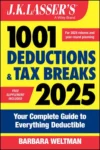No Recovery of Attorney
If a taxpayer fights the IRS and wins, under certain circumstances, the taxpayer is entitled to recover attorney’s fees from the federal government. Conditions for recovery:
- Be the prevailing party in a civil litigation on a tax matter in any federal court (a U.S. district court, the U.S. Claims Court, or the U.S. Tax Court). This means that a taxpayer substantially prevailed with respect to the amount in controversy or the most significant issue or set of issues presented.
- Exhaust administrative remedies. Under IRS rules, for example, it is necessary that a taxpayer ask for an appeals office conference prior to commencing a suit for refund or a Tax Court petition in order to satisfy this requirement.
- Show that the IRS’s position was not “substantially justified.” Generally, this means that the government knows its position is incorrect but continues to pursue it.
- Request a recovery of attorney fees and litigation costs in a court action; a court will not award such fees on its own initiative.
If a taxpayer represents himself, can he recover costs based on what he would have had to pay an attorney? An appellate court recently said no. The language of the law allows a recovery only for the services of an attorney paid or incurred in connection with the court proceeding. Since a taxpayer representing himself does not pay any fees, there can be no recovery.
Source: Paul S. Hudson; No. 09-3600
Tenancy by the entireties
A joint tenancy in real property in the name of both husband and wife. On the death of one tenant, the survivor receives entire interest.



